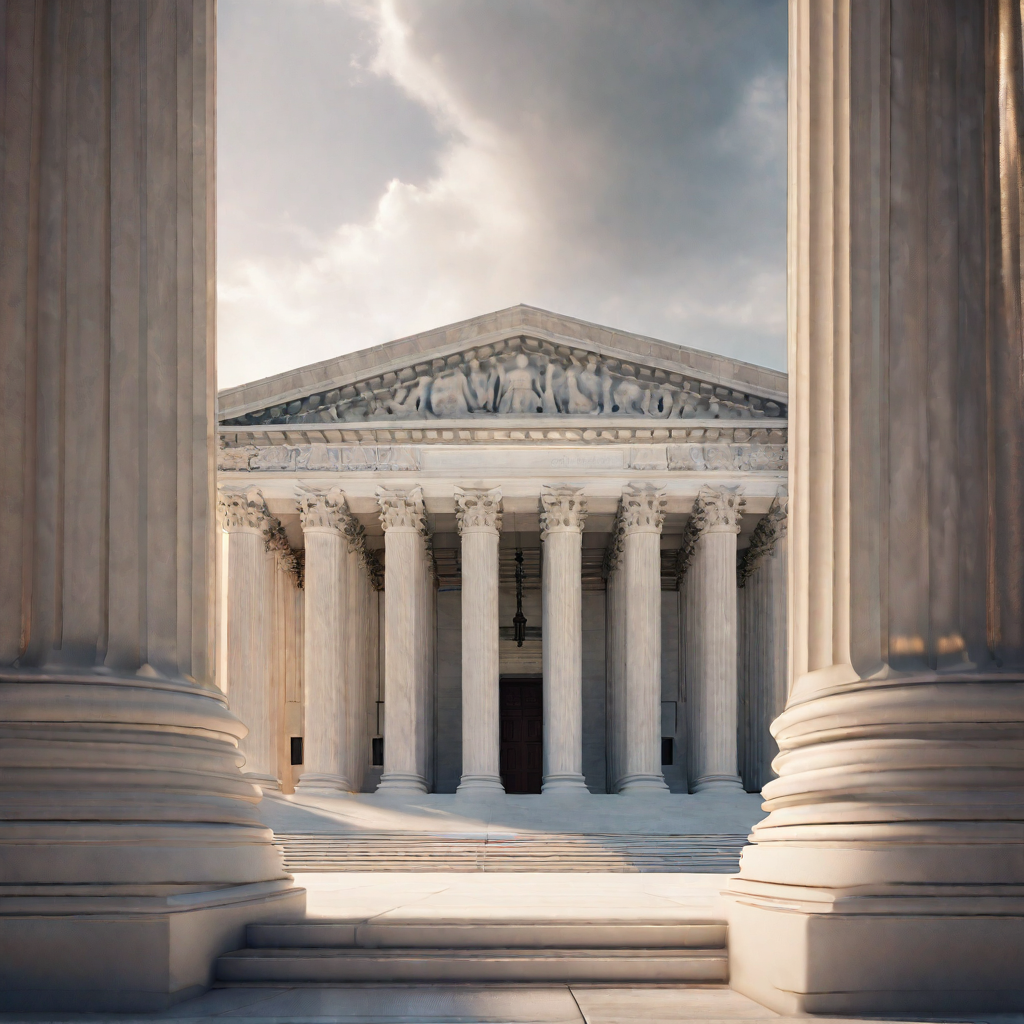Supreme Court Hearing Case on Trump’s Eligibility for Colorado Ballot: Live Updates
Welcome to our live updates on the Supreme Court hearing case on Trump’s eligibility for the Colorado ballot. In this article, we will provide you with the latest information and insights regarding this momentous argument that could potentially alter the course of the presidential election. We will delve into the key issues raised, the arguments presented, and the potential implications of the Supreme Court’s ruling. Join us as we explore the legal intricacies surrounding Trump’s eligibility for another term and the potential impact on the political landscape.
Trump’s Case: A Brief Overview
The Supreme Court is currently hearing arguments that will determine whether former President Donald J. Trump’s attempts to undermine the 2020 election disqualify him from holding office again. This case has garnered significant attention as it presents a unique opportunity for the court to directly influence the outcome of a presidential contest, similar to the Bush v. Gore case in 2000.
The scope of the court’s ruling is expected to be far-reaching. Not only will it address whether Trump can appear on the Colorado primary ballot, but it will likely have implications for his eligibility to run in the general election and hold office altogether. This case is just one of several legal matters involving or impacting Trump that the court is currently considering.
Key Issues Raised
The arguments in this case have primarily focused on two key issues raised by Trump’s lawyer, Jonathan Mitchell. Firstly, Mitchell argues that the president is not considered an “officer of the United States” and, therefore, is not covered by Section 3 of the 14th Amendment. Secondly, he contends that disqualifying Trump under the amendment is not “self-executing” and would require additional action from Congress.
The case before the Supreme Court stems from a ruling by the Colorado Supreme Court in December, which disqualified Trump from the state’s Republican primary ballot based on Section 3 of the 14th Amendment. This provision was adopted after the Civil War to prevent individuals who engaged in insurrection or rebellion against the United States from holding office. It states that anyone who has taken an oath to support the Constitution and has subsequently engaged in insurrection or rebellion shall be disqualified, but Congress can remove this disability with a two-thirds vote.
Arguments from Trump and Colorado Voters
Trump has vehemently attacked the Colorado court’s ruling on multiple grounds, all ultimately contending that the voters should decide the election. His legal team argues that efforts to disqualify him from the ballot threaten to disenfranchise millions of Americans and could potentially lead to chaos if other state courts and officials follow Colorado’s lead.
On the other side, the six Colorado voters who prevailed in the case have urged the justices not to yield to what they perceive as threats of political violence from a candidate who has demonstrated a propensity for such behavior. They emphasize that Trump’s position is more political than legal and that his presence on the ballot could lead to further turmoil.
The Insurrection Question
One significant aspect of the case revolves around whether the events of January 6, 2021, can be classified as an insurrection and whether Trump engaged in actions that could be considered as such. The Supreme Court must determine if Trump’s actions in attempting to overturn the 2020 election, which culminated in the Capitol riot, constitute aiding or participating in an insurrection.
The term “insurrection” lacks a precise definition in the Constitution. While some critics use it to describe the actions of the pro-Trump mob that stormed the Capitol, others argue that it is an exaggeration. Federal statutes refer to insurrections as unlawful obstructions, combinations, or assemblages that impede the enforcement of American laws.
The question remains whether Trump’s actions, even if he did not physically storm the Capitol, can be deemed as engaging in an insurrection against the government or providing aid and comfort to its enemies. This novel legal challenge presents an opportunity for the Supreme Court to establish precedent in a situation where a presidential candidate is accused of being an oath-breaking insurrectionist.

The Supreme Court hearing case on Trump’s eligibility for the Colorado ballot is a pivotal moment in American politics. The court’s ruling will have far-reaching implications not only for Trump but for the future of presidential elections. As we await the court’s decision, the arguments presented and the legal intricacies of the case highlight the delicate balance between constitutional interpretation and the democratic process. Stay tuned for more updates on this significant legal battle.
FAQs
What is the Supreme Court hearing case on Trump’s eligibility for the Colorado ballot?
The Supreme Court is currently hearing arguments to determine whether former President Donald J. Trump’s attempts to undermine the 2020 election disqualify him from holding office again. The case will have implications for his appearance on the Colorado primary ballot, his eligibility to run in the general election, and his ability to hold office.
What are the key issues raised in the case?
The arguments in{start}
Supreme Court Hearing Case on Trump’s Eligibility for Colorado Ballot: Live Updates
Introduction
Welcome to our live updates on the Supreme Court hearing case on Trump’s eligibility for the Colorado ballot. In this article, we will provide you with the latest information and insights regarding this momentous argument that could potentially alter the course of the presidential election. We will delve into the key issues raised, the arguments presented, and the potential implications of the Supreme Court’s ruling. Join us as we explore the legal intricacies surrounding Trump’s eligibility for another term and the potential impact on the political landscape.
Trump’s Case: A Brief Overview
The Supreme Court is currently hearing arguments that will determine whether former President Donald J. Trump’s attempts to undermine the 2020 election disqualify him from holding office again. This case has garnered significant attention as it presents a unique opportunity for the court to directly influence the outcome of a presidential contest, similar to the Bush v. Gore case in 2000.
The scope of the court’s ruling is expected to be far-reaching. Not only will it address whether Trump can appear on the Colorado primary ballot, but it will likely have implications for his eligibility to run in the general election and hold office altogether. This case is just one of several legal matters involving or impacting Trump that the court is currently considering.
Key Issues Raised
The arguments in this case have primarily focused on two key issues raised by Trump’s lawyer, Jonathan Mitchell. Firstly, Mitchell argues that the president is not considered an “officer of the United States” and, therefore, is not covered by Section 3 of the 14th Amendment. Secondly, he contends that disqualifying Trump under the amendment is not “self-executing” and would require additional action from Congress.
The case before the Supreme Court stems from a ruling by the Colorado Supreme Court in December, which disqualified Trump from the state’s Republican primary ballot based on Section 3 of the 14th Amendment. This provision was adopted after the Civil War to prevent individuals who engaged in insurrection or rebellion against the United States from holding office. It states that anyone who has taken an oath to support the Constitution and has subsequently engaged in insurrection or rebellion shall be disqualified, but Congress can remove this disability with a two-thirds vote.
Arguments from Trump and Colorado Voters
Trump has vehemently attacked the Colorado court’s ruling on multiple grounds, all ultimately contending that the voters should decide the election. His legal team argues that efforts to disqualify him from the ballot threaten to disenfranchise millions of Americans and could potentially lead to chaos if other state courts and officials follow Colorado’s lead.
On the other side, the six Colorado voters who prevailed in the case have urged the justices not to yield to what they perceive as threats of political violence from a candidate who has demonstrated a propensity for such behavior. They emphasize that Trump’s position is more political than legal and that his presence on the ballot could lead to further turmoil.
The Insurrection Question
One significant aspect of the case revolves around whether the events of January 6, 2021, can be classified as an insurrection and whether Trump engaged in actions that could be considered as such. The Supreme Court must determine if Trump’s actions in attempting to overturn the 2020 election, which culminated in the Capitol riot, constitute aiding or participating in an insurrection.
The term “insurrection” lacks a precise definition in the Constitution. While some critics use it to describe the actions of the pro-Trump mob that stormed the Capitol, others argue that it is an exaggeration. Federal statutes refer to insurrections as unlawful obstructions, combinations, or assemblages that impede the enforcement of American laws.
The question remains whether Trump’s actions, even if he did not physically storm the Capitol, can be deemed as engaging in an insurrection against the government or providing aid and comfort to its enemies. This novel legal challenge presents an opportunity for the Supreme Court to establish precedent in a situation where a presidential candidate is accused of being an oath-breaking insurrectionist.
The Supreme Court hearing case on Trump’s eligibility for the Colorado ballot is a pivotal moment in American politics. The court’s ruling will have far-reaching implications not only for Trump but for the future of presidential elections. As we await the court’s decision, the arguments presented and the legal intricacies of the case highlight the delicate balance between constitutional interpretation and the democratic process. Stay tuned for more updates on this significant legal battle.
















